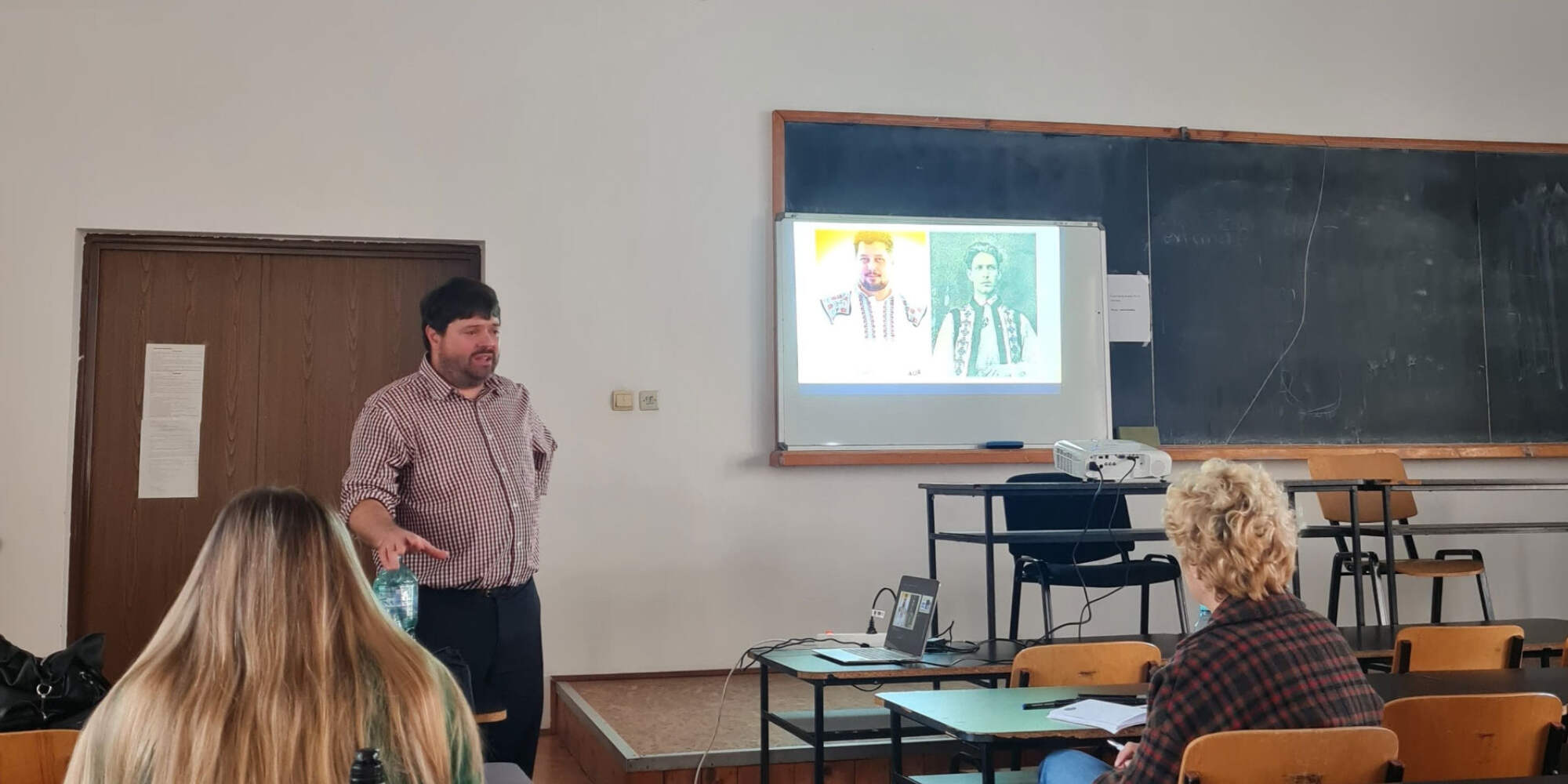
Today's interview in our Humanising Historians series features Reader in Modern European History, Dr Roland Clark. Here he discusses what ignited his fascination in Romanian History, as well as other personal interests.
You’ve got an accent. Where is it from?
I grew up in Ulverstone, which is a small town on the north-west coast of Tasmania. I moved to Sydney when I was ten years old and that is where I stayed for university and my first job. My accent isn’t as strong as a lot of Aussies you’ll meet because no-one understood me when I first left Australia about 20 years ago, so I had to make a conscious effort to try and speak Mid-Atlantic English. Regardless, when I was teaching in America my students there always used to talk about how much they liked listening to my accent. I don’t think they learned anything from my lectures, but they enjoyed the sound of them.
What initially ignited your interest in Romanian history?
I did a module on the history of fascism when I was in my second year of uni and the lecturer mentioned something called “clerical fascism”. I was doing a joint Honours degree in History and Religious Studies, and I thought that the idea of fascists priests with guns sounded really cool. It turns out that one of the most important examples of clerical fascism in interwar Europe was in Romania, so after I finished uni I taught high school for a year to make some money and then moved to Romania for 18 months to learn the language in order to write about Romanian fascism for a PhD in the United States. And the rest, as they say, is history.
What are you currently reading and why?
I’m reading two books at the moment. One is Artan Hoxha’s Sugarland (2023), which is a history of sugar production in communist Albania. I am interviewing the author as part of a podcast I contribute to called the New Books Network and want to get my head around the book before we talk. The other thing I’m reading is Tom Wright’s The Way of the Lord (1999), which is an Anglican priest’s take on Christian pilgrimage. I’m walking the Camino de Santiago from Sarria to Santiago de Compostela later this spring and I’m trying to get my head around the whole concept of pilgrimage.
What's on your "yet to read" list and why?
I’m constantly reading and looking for new books to read. Reading too much literary criticism has kind of put me off fiction because I find myself analysing novels too heavily to enjoy them, and my favourite genres at the moment are theology and Biblical Studies. I like learning new things about the world and finding new ways of seeing old things that I haven’t thought about before.
What kind of TV programmes interest you and why? Any guilty pleasures?
Anything that makes me laugh. I don’t have the patience to sit through mini-series or any plot that takes more than half an hour to develop, so I like my humour quick and infantile. I also find myself watching quite a bit of anime because that’s what my daughter has the television on most of the time at the moment.
How about music?
I play the piano and thanks to my wife I listen to a lot of Classic FM, but my real passion is punk rock, especially bands from the golden age of the 1990s like Rancid, the Vandals, AFI, or the Dwarves. The album I’m listening to more than anything else at the moment is by an Israeli metal band called Gevolt, who sing in Yiddish. I’m trying to learn Yiddish for my research, and these guys take a lot of the sorts of traditional Klezmer folk songs that you would learn in a language classroom and turn them into modern rock. It makes learning fun.
What do you like to do to switch off as a hobby - if you have any?
I spend most of my free time walking the dog or driving my daughter from one after-school activity to another, but when I sit down and stare at my phone I’m mostly playing with Duolingo. I find the dopamine quite addictive and I figure that if you’re going to be looking at a phone for long periods of time you might as well learn something from it. I’ve been doing Yiddish for the past year or so, but have taken a break over the past couple of months to learn some Spanish ahead of my trip to Santiago de Compostela. Once that’s done I’ll say “hasta luego” to Spanish and go back to conjugating my Yiddish verbs.